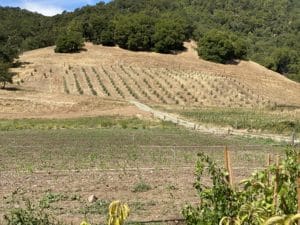



“Why don’t we have to label everything that’s not organic and not label organic? Let’s flip the tables.”
– Stephen Williamson, Forager Project Co-Founder
In order to be certified USDA organic, farmland and crops must adhere to strict guidelines and practices. For organic certification, farms are assessed by their soil quality, weed control/treatment, general farming practices and additives. In order to be considered organic, crops must be grown on farmland that has not used prohibited, toxic pesticides and fertilizers for at least three years. When you eat organic, you can be assured that your food does not contain chemical fertilizers, pesticides, genetically modified organisms or any other artificial agents.

Is organic farming better for the environment? Organic farming begins with soil. Organic farming uses nature’s principles to create nutrient rich soil with a healthy microbiome and a high level of biodiversity. Cover crops, crop rotation, companion planting and composting are among the techniques used by organic farmers to help create nutritious soil, the foundation for growing healthy crops. Nutrient-rich soil then provides seeds and plants with the resources to create nutrient rich foods that we can enjoy.
Conventional farming is almost solely focused on output, without concern for the long term impact this approach has on our food quality and security. This approach to agriculture we rely so heavily on has stripped away nature’s ability to provide high-quality, flavorful and nutrient dense food. Instead, the land and soil depend on toxic pesticides and herbicides to kill weeds and petrochemical fertilizers to artificially stimulate crop growth in soil that lacks nutrients. Essentially, the use of chemical fertilizers and pesticides is a band-aid to compensate for nutrient-depleted soil.

Non-GMO means there are no genetically modified organisms, meaning organisms that have been scientifically altered in such a way that does not occur in nature. Organic certification has an even higher standard of requirements than non-GMO. Products that are organic do not include any genetically modified organisms and also do not include chemical fertilizers, pesticides, or other artificial agents.

Forager Project is a family-owned and operated organic food company, crafting plant-based foods in California since 2013.